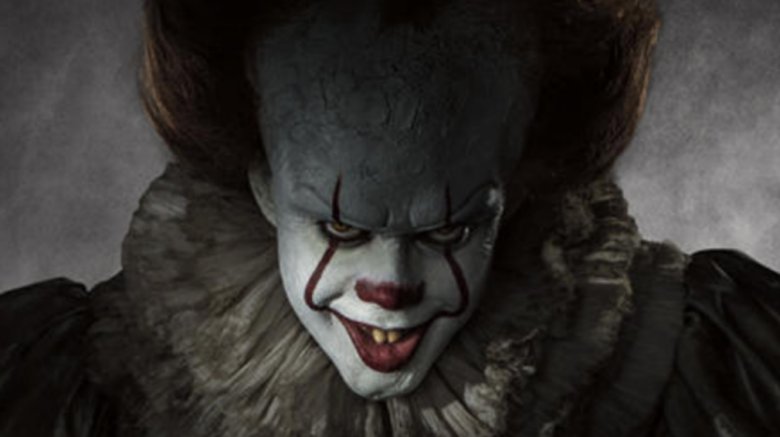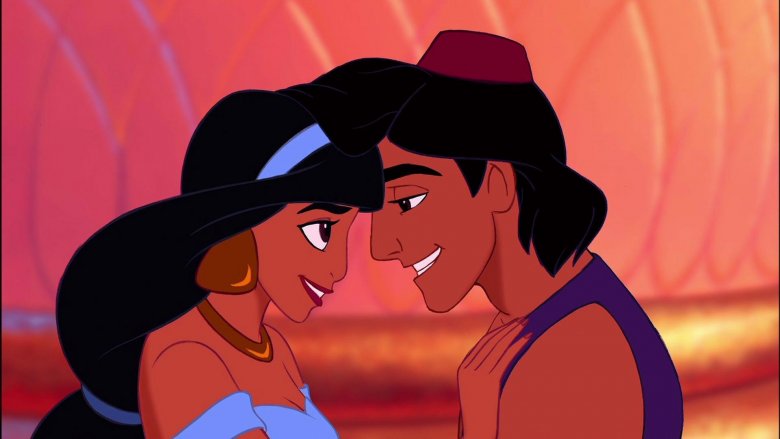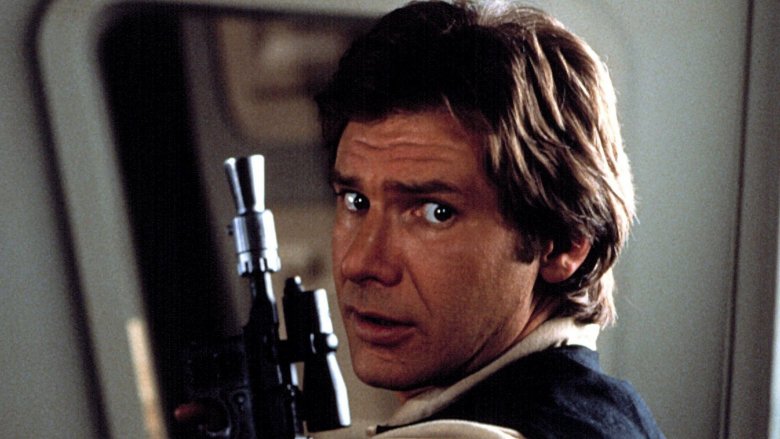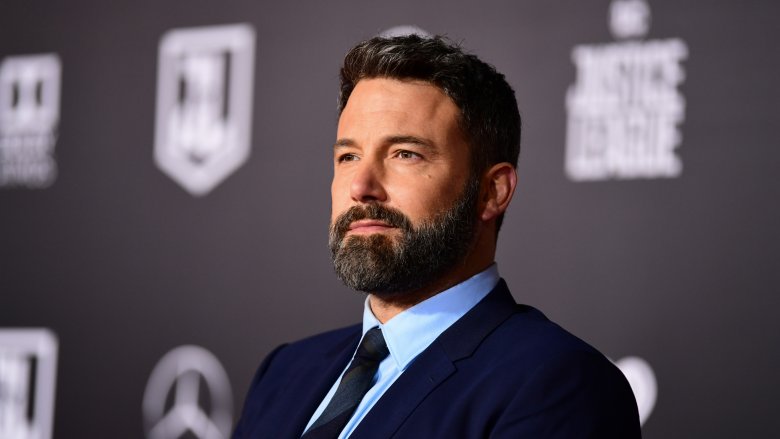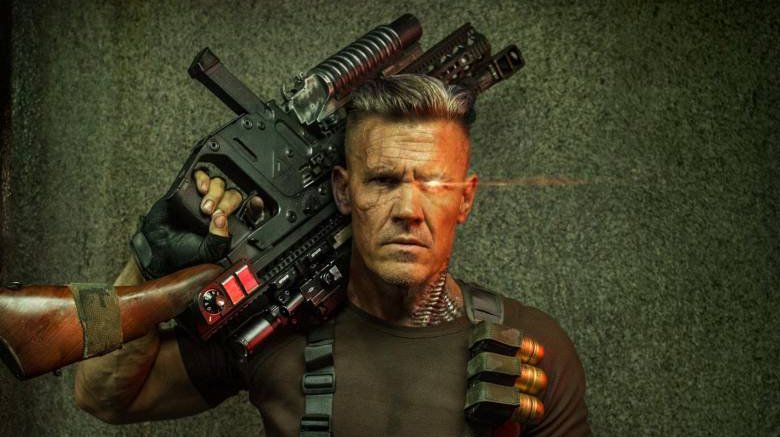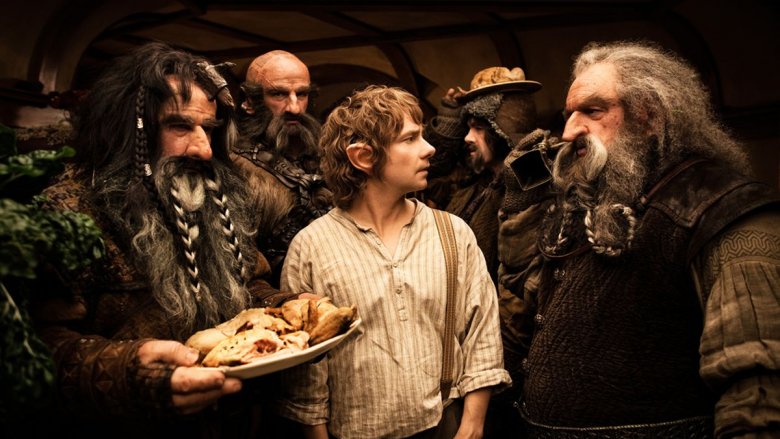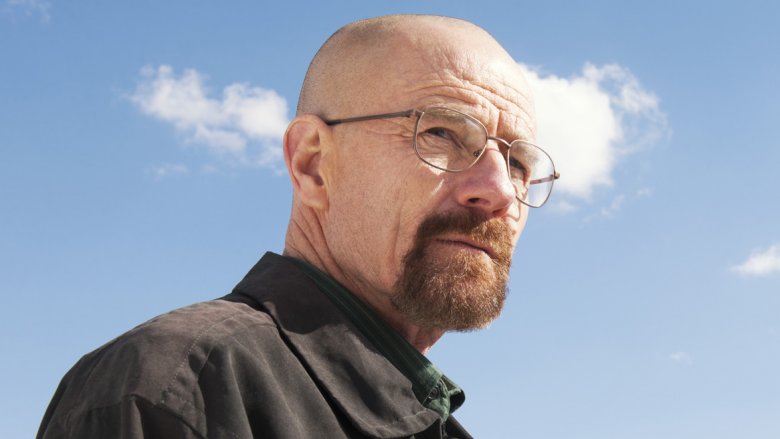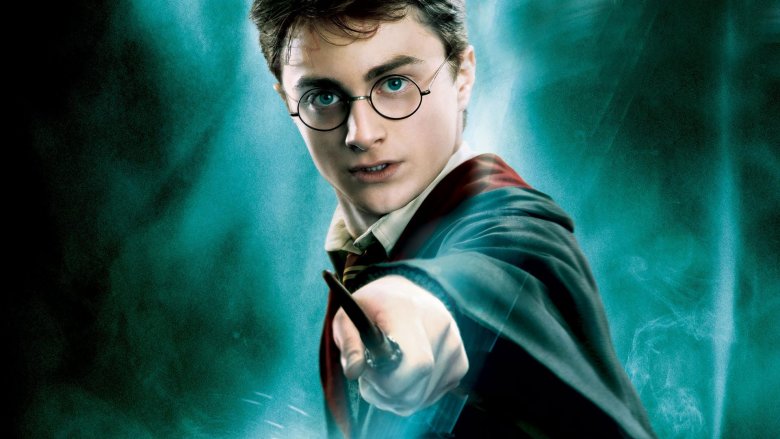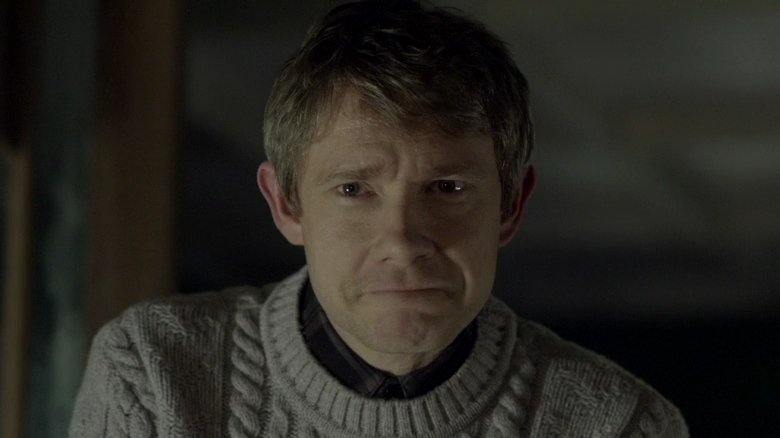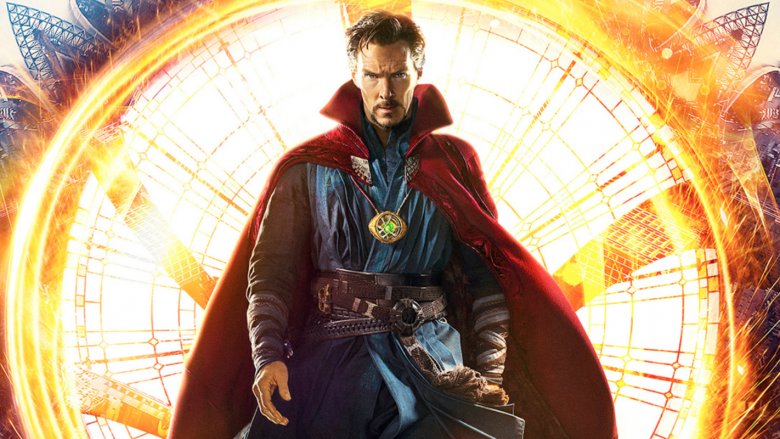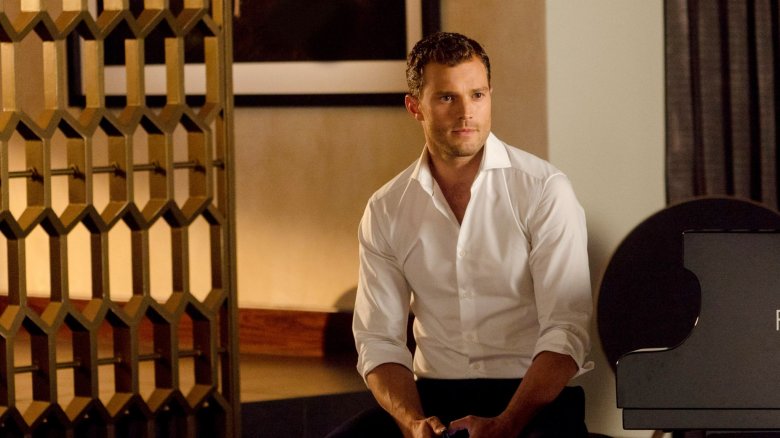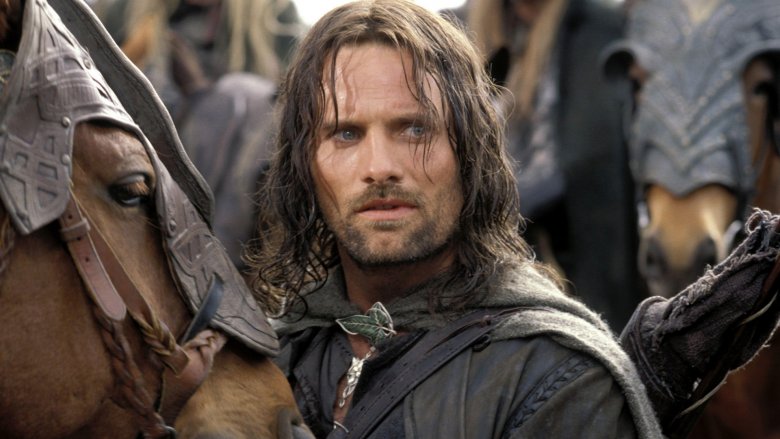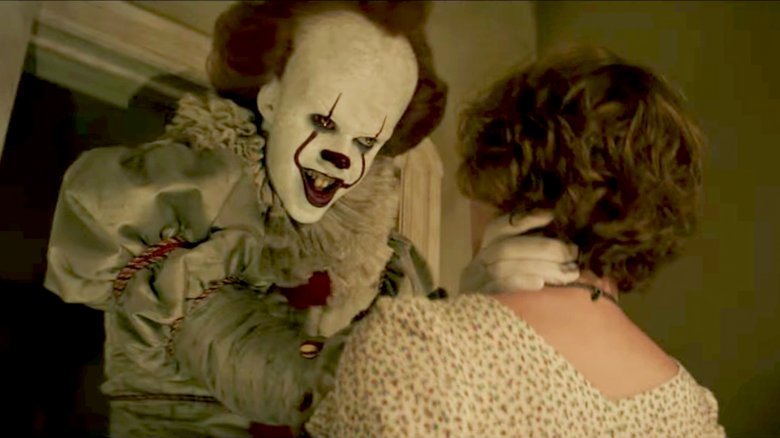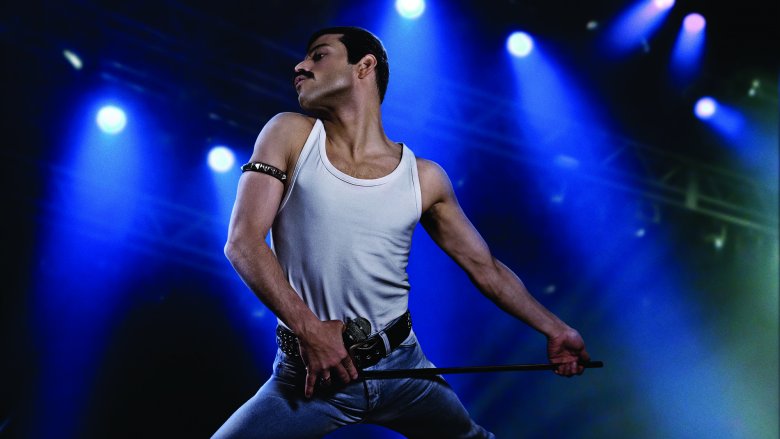Roles In Hollywood That Were Really Difficult To Cast
Casting can make or break a movie. It's important to find stars who will bring their own flair to a part while perfectly embodying the characters as written. Considering the difficulty of finding the right person, it makes sense that many casting directors sometimes see hundreds of auditions for a single role. However, while this is commonplace, many of your favorite movies end up having a lot of trouble getting the casting just right. Here are some roles in Hollywood that were very difficult to cast.
Aladdin and Jasmine in Aladdin (2017)
Recasting a classic isn't an easy task, something which Disney learned while trying to find the leads for their live-action Aladdin remake. The studio is said to have looked at thousands of people before ultimately landing on relative newcomer Mena Massoud to play Aladdin and Power Rangers actress Naomi Scott to play Jasmine.
Disney reportedly brought in casting directors from around the world to look at about 2,000 actors and actresses for the leads, bringing in unknowns and big names like Riz Ahmed and Dev Patel. However, struggles with finding a lead the right age, who could act and sing while also being of Middle Eastern or Indian descent, were said to have lengthened the casting process. It got so out of hand that Disney pushed back the planned production start date multiple times.
When Disney and casting agents got to the point of screen testing—performing a scene with an on- or off-screen actor—that too was said to have gone on for weeks at a time, with one agent whose client was tested saying that it was "a mess." Sources say that after initial testing didn't go well, the studio even had to go back to the drawing board and look through the screen test tapes once again in order to find their lead.
Although many were happy when Disney finally chose Massoud and Scott, others were upset given that Massoud is of Middle Eastern descent and Scott is of Indian descent. Critics have accused the studio of seeing people of color as "culturally interchangeable."
Han Solo in Solo: A Star Wars Story
Star Wars' attempt to spin-off one of its most interesting characters has not been smooth sailing. The film, which will follow a younger version of Harrison Ford's Han Solo, was all over the news after its original directors, Phil Lord and Christopher Miller, were fired from the production due to creative differences with Lucasfilm. Although they were eventually replaced by Ron Howard, some of the reports surrounding their firing have fans worried about the resulting film.
The main piece of information concerning fans has to do with the movie's young Solo, Alden Ehrenreich. According to some sources, the studio had to bring in an acting coach for Ehrenreich after reportedly being not "entirely satisfied" with his performance. Although this isn't entirely unusual, it is uncommon for it to happen as far into the production as it did.
What makes the situation even stranger is the fact that Ehrenreich had to go through a lot to land his role. Disney is said to have looked at over 2,500 actors for the project, including Dave Franco, Aaron Taylor-Johnson, Ansel Elgort, and Miles Teller. The casting process started more than a year ahead of the film's production start date, and with the amount of tests Ehrenreich likely had to go through, it should be interesting to see how his performance eventually turns out.
All of the parts in Triple Frontier
You may be hard pressed finding a project that has gone through as many A-list actors as the as-yet-unreleased Netflix film Triple Frontier. The thriller was initially set up for Paramount, with Tom Hardy and Channing Tatum attached to star. (Previous names rumored for the project have included Tom Hanks, Will Smith, and Johnny Depp.)
Initially, Kathryn Bigelow was set to direct based on a script from Mark Boal; she later left and was replaced by J.C. Chandor. Further down the line, Moonlight star Mahershala Ali was attached to the film as well. However, as budget costs soared, the struggling Paramount eventually decided not to move forward with the project, leading Hardy, Tatum, and Ali to depart just a month before filming was initially scheduled to start.
The movie then quickly moved to Netflix, which looked to hire an all-new cast, led by Ben Affleck and his younger brother Casey. However, Ben later left the project, reportedly to "take some time to focus on his wellness and his family." Later that week, Netflix signed Mark Wahlberg, Charlie Hunnam, Garrett Hedlund, and Pedro Pascal to star in the film, again just a month before production was set to start.
Although we have yet to see any official stills or videos from the film at the time of this writing, it should be interesting to see what convinced so many talented actors to sign on—and what caused so many of them to leave.
Cable in Deadpool 2
David Leitch found an actor with plenty of Marvel Cinematic Universe experience to play comic book favorite Cable in Deadpool 2. The director recruited Josh Brolin, who already plays big bad Thanos in the MCU, to take on the role of the time-traveling mutant, but signing the Oscar-nominated A-lister wasn't an easy journey.
Rumors about the search for Cable started shortly after the character was teased in a Deadpool post-credits scene. Early on, rumors said that Friday Night Lights actor Kyle Chandler and Stranger Things star David Harbour were both up for the part; later, Michael Shannon was said to be at the top of a shortlist for the role.
However, the most infamous rumor had to do with megastar Brad Pitt, who Leitch revealed was at one point in talks for the role. Scheduling constraints ended up getting in the way of a Pitt-Deadpool love affair, but everyone seems pretty happy with Brolin on board, with Leitch saying he is "the embodiment of [Cable]."
Bilbo Baggins in The Hobbit series
The Hobbit went through a long and unexpected journey to the big screen. Guillermo del Toro was initially set to direct the trio (initially, a duo) of films, and although he never got to the casting stage, rumor has it that he had James McAvoy in mind for leading man Bilbo Baggins. (McAvoy denies he ever met with anyone about the film.)
However, del Toro eventually dropped out and was replaced (after some hedging) with Lord of the Rings director Peter Jackson. Jackson set about casting the film, and he had one man in mind for Bilbo—Martin Freeman. Freeman was at the time best known for Hitchhiker's Guide to the Galaxy, but he had just kicked off a new and exciting role, that of Dr. John Watson on BBC's Sherlock.
Freeman was at first forced to turn down Jackson's offer to star in The Hobbit due to Sherlock, much to Jackson's chagrin. The director said he continued looking for a new star, but would "torture" himself staying up late watching Sherlock and thinking about how perfect Freeman would be in the role.
Luckily, they were eventually able to work the scheduling out, giving Freeman four months of filming in New Zealand before two months back in England to film Sherlock. The films also became a reunion for fans of the BBC drama—Freeman's Sherlock co-star, Benedict Cumberbatch, landed a role as well, providing the voice and motion capture for the dragon Smaug.
Walter White in Breaking Bad
Bryan Cranston swept nearly every awards show in existence during his run as Walter White on the critically acclaimed series Breaking Bad, but he almost didn't land the part. The actor was best known at the time for his comedic performance as the patriarch of the Wilkerson family on Malcolm in the Middle, and the network wasn't sure he could convincingly play teacher-gone-bad Walter White.
Showrunner Vince Gilligan knew that wasn't the case though. Gilligan had written for Cranston on a 1998 episode of The X-Files in which he played a sinister and desperate man suffering from radiation poisoning, and he immediately saw his acting potential. Gilligan described him as "wonderful" in the role and said he "never forgot" about the performance.
However, the network was a bit harder to get on board. They pursued bigger stars like John Cusack and Matthew Broderick for the role, but both wound up passing, allowing Gilligan to convince them to take another look at Cranston. "We all still had the image of Bryan shaving his body in Malcolm in the Middle," one exec said. "We were like, 'Really? Isn't there anybody else?'" Luckily, when they watched his X-Files episode, they were sold, allowing Cranston to officially cement his place in TV history.
Harry Potter in the Harry Potter series
If rumors are to be believed, the Harry Potter series was almost very, very different. Warner Bros. initially approached Steven Spielberg to direct the films, with the director looking to make an animated version of the books, reportedly with Haley Joel Osment voicing the title character.
However, Spielberg eventually departed the film and a new director, Chris Columbus, was brought on board. Columbus was then up against the daunting task of finding a lead for the film, with the search for a young British star said to have encompassed as many as 40,000 actors.
As most everyone now knows, Daniel Radcliffe wound up landing the part, with Emma Watson playing Hermione and Rupert Grint playing Ron. All three were new to the business, but Radcliffe actually had the most experience via his role as young David in BBC's David Copperfield miniseries. (Watson and Grint had both only appeared in school plays.)
It was the miniseries that led Columbus to approach Radcliffe to audition, but he didn't agree right away. While the chance to try out for a much coveted role like Potter seems like an easy bet, Radcliffe actually turned it down at first because his parents thought it would mean moving to Los Angeles to film the series of movies.
Eventually, producers agreed to lessen the commitment to just two films and to shoot them in the United Kingdom, allowing Radcliffe to sign on with a little less disruption to his life. Columbus said that he knew Radcliffe was right for the part right away, and considering the billions the films made at the box office, it seems that the books' fans agreed as well.
Dr. John Watson in Sherlock
It didn't take long to find the title character for BBC's Sherlock—as soon as they saw Benedict Cumberbatch's curmudgeonly but charming take on the character, creators Mark Gatiss and Stephen Moffat were sold. However, finding his partner, Dr. John Watson, was a much more difficult affair.
Part of the problem in casting was because the man who would ultimately land the part, the always-in-demand Martin Freeman, was in a bit of a mood at his first audition. Freeman said that he had a "terrible" audition and that they "sort of hated" him, leaving the impression that he wasn't interested in the role. "I might well have been a moody prick, but I really did want it," he said.
Luckily, his agent called back a week later to see if he really was as disinterested as he seemed during the audition. Freeman quickly corrected that assumption and was brought back for a second audition, where he read with Cumberbatch. The auditions for Sherlock also helped establish another famed TV casting—that of Matt Smith, who was the first to read for Watson and was eventually cast as the title character on Moffat's Doctor Who.
Doctor Stephen Strange in Doctor Strange
All of the parts in the hugely popular Marvel Cinematic Universe are highly coveted, and the superhero sorcerer Doctor Strange was no exception. Ahead of the film's release, the rumor mill ran rampant with possible A-list names who could sign on to play the title character: Jared Leto, Justin Theroux, Keanu Reeves, Ryan Gosling, Oscar Isaac, Matthew McConaughey, Ewan McGregor, Jake Gyllenhaal, Ethan Hawke, Tom Hardy, and more all had their names thrown into the mix.
Ultimately, the studio landed on Joaquin Phoenix and set about signing him for the role. However, talks eventually halted, forcing them to go back to the drawing board—and back to their first choice, Benedict Cumberbatch, who had initially been unavailable due to a commitment to star in a theatrical version of Hamlet during the movie's filming.
Negotiating Cumberbatch's magical entry into the MCU was not an easy task. Although director Scott Derrickson said that the Sherlock actor was the only one he ever "seriously considered" for the title character in Doctor Strange, they ultimately had to push back the movie's filming and planned release date in order to accommodate Cumberbatch's busy schedule.
Although pushing back the release date was unprecedented for the studio, Marvel head Kevin Feige said that they had to do it. "We looked at some other actors for a while and ultimately decided, 'We have to try and make it work with Benedict and with his schedule,'" Feige said. It looks like they made the right choice.
Christian Grey in the Fifty Shades of Grey series
Casting any adaptation of a property with hardcore fans is no easy task, and that was the case for the Fifty Shades of Grey series. Although producers at first had Robert Pattinson in mind, they eventually decided to go a different route, and many of Hollywood's tall, dark, and handsome leading men—including Ian Somerhalder and Chace Crawford—ended up being rumored for the role.
After the likes of Ryan Gosling and Garrett Hedlund turned the part down, it ultimately went to Sons of Anarchy star Charlie Hunnam. This upset many fans, and he and his costar, Dakota Johnson, were targeted by a petition asking for them to be replaced with Matt Bomer and Alexis Bledel. (Bomer, for his part, said he was "grateful" and "touched" by the requests, but put a kibosh on those rumors.)
Fans got their wish, at least in part, when Hunnam dropped out due to scheduling conflicts with his popular FX series, Sons of Anarchy. After reportedly testing Billy Magnussen and Luke Bracey, producers settled on a new star in Jamie Dornan. According to some reports, producers may have gotten close to having to look for another star after the first film, with some suggesting that Dornan considered dropping out of the rest of the movies.
Dornan did wind up completing the trilogy, although don't expect him to stick around for any potential future films—he has said that he's ready to hang up his whip and won't play Christian again after Fifty Shades Freed.
Aragorn in The Lord of the Rings
Just like finding The Hobbit's Bilbo, finding The Lord of the Rings' Aragorn was a long and arduous task. Although Viggo Mortensen wound up blowing everyone away in the part, he wasn't actually the first choice—that honor went to multiple Oscar winner Daniel Day-Lewis.
Day-Lewis was reportedly offered the role multiple times but later said that he turned it down because big franchises are "not for [him]." The role was then given to Irish actor Stuart Townsend, who trained for weeks before being dropped the day before the start of filming. Townsend later revealed that Jackson decided last minute that he wanted someone older to take on the role.
Others were offered the role before Mortensen as well; Nicolas Cage revealed that he turned down the part because there were "different things going on in [his] life" that prevented him from being away for all three years of filming. New Zealand native Russell Crowe said he turned it down because the film was under budget pressure.
Luckily, Jackson was able to find the right man for the part in Mortensen, who said he signed on because his son "egged him on to do it." Mortensen wound up earning two Saturn Award nominations—an honor in sci-fi and fantasy—as well as a slew of other accolades for his performance, so it seems Jackson made the right choice.
Pennywise in It (2017)
Andy Muschietti's It took over the box office when it debuted in the summer of 2017, but the film went through quite a few iterations before finally hitting the big screen. The project was first set up with David Kajganich directing, but he later dropped out and was replaced with Cary Fukunaga.
Fukunaga set about casting his perfect Pennywise, picking The Maze Runner star Will Poulter for the part. Fukunaga ended up quitting the project over creative differences, and Poulter left shortly after, reportedly due to scheduling conflicts. Other actors said to have auditioned at the time include Mark Rylance and Ben Mendelsohn.
New director Andy Muschietti offered a different reason, saying that, while he was still "intrigued" at the idea of working with Poulter, the actor felt he was "disengaged" from playing the "dark and terrifying" character and wanted to move on to other projects.
Whatever the reason, Muschietti was left without a star, and he set about looking for his new killer clown. This included, according to producer Barbara Muschietti, looking at "literally hundreds" of actors, both old and young—even including Tilda Swinton. Ultimately, they landed on Bill Skarsgard, whose creepy take on the character is now officially ingrained in the brains of horror fans everywhere.
Freddie Mercury in Bohemian Rhapsody
Like many of the films on this list, the Queen biopic Bohemian Rhapsody also went through a few directorial shake-ups, with casting shake-ups following suit. The main role in question was the leading part of the late Freddie Mercury, whose idol status brought about a lot of baggage for potential stars signing on to the part.
Borat's Sacha Baron Cohen was the first to commit to the role, but he eventually left the project, reportedly due to creative differences with the band. (Cohen has stated he had a couple of reasons for exiting, including wanting an edgier take on the rocker's life.)
A few months later, James Bond's "Q" in Skyfall, actor Ben Whishaw, joined the project, which was then set to be directed by Dexter Fletcher. However, Fletcher later dropped out, again due to creative differences, and although Whishaw remained in producers' sights for the lead, the part eventually went to Mr. Robot's Rami Malek.
Malek started filming the movie with director Bryan Singer, although filming did not move ahead without its problems. Production was halted shortly after Thanksgiving in 2017 when Singer reportedly stopped showing up to set, and he was later fired from the project. (The director contends he was dealing with a family emergency that the studio was not responsive to.) The project eventually came full circle, with Fletcher signing back on to replace him and finish the film.
